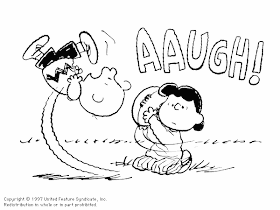What though the sea with waves continuall
Doe eate the earth, it is no more at all ;
Ne is the earth the lesse, or loseth ought :
For whatsoever from one place doth fall
Is with the tyde unto another brought :
For there is nothing lost, that may be found if sought.
― Edmund Spenser, The Faerie Queene
Municipal bond market maven, government official, and longtime Twitter fixture Kristi Culpepper penned an interesting riposte yesterday to Leon Wieseltier’s recent jeremiad against the disruptive cultural effects of technology in The New York Times. Leon, you may recall, laid about rather vigorously with his rhetorical cudgel in defense of humanism against the allied evils he sees arrayed against it today, including technologism, scientism, data fetishism, and commerce. He declared—correctly if rather dramatically—that “A culture is an internecine contest between alternative conceptions of the human.” And he, if I may be so blunt, came down on the side of writing, art, and Western cultural patrimony and against the forces who wish to strip, devalue, and denature same in the name of technological progress and efficiency.
Now, being as I have consistently declared myself an amateur and aficionado of such arty, literary, cultural-y things, I am sympathetic to Mr. Wieseltier’s arguments, although I do think he lays it on a bit thick in the straw man department. I also have reservations that his full-throated defense of writers and thinkers against the commoditization, devaluation, and impoverishment of a certain sort of careful, deeply informed thinking and writing by the forces triumphant of digital and social media is a bit overblown. For one thing, I would observe Mr. Wieseltier himself seems to have had no problem securing a soapbox at the paper of record for the liberal intelligentsia to spout his opinions, mere weeks after the implosion of his prior perch at The New Republic due to the machinations of the sort of technologist philistines he decries. Second, I utterly fail to see a shortage of intelligent, hardworking writers pontificating on important matters and sundry throughout the English speaking opinionsphere. It seems that everybody and his brother and his brother’s three-legged cat are scribbling as journalists, bloggers, opinion editors, MFA students, novelists, and nonfiction writers nowadays. When I walk into the ground floor of my local 50,000 square foot Barnes & Noble bookstore, I am not struck by any dearth of written material for my perusal, and the ground floor of my store is not filled with the works of dead white men (those are in the basement). Speaking as an acolyte of microeconomics (and a minor unpaid contributor to the general oversupply of published dreck), it strikes me that writers face a supply problem in the market for their wares, not a lack of demand. Maybe if writing weren’t so popular as a lifestyle choice, rather than an actual calling for a dedicated few (as it has been for most of recorded time), fewer professional writers would be bemoaning the parlous state of their bank accounts.
Be that as it may, Ms Culpepper takes issue with our Cultural Cassandra from another direction:
First, innovation presents new opportunities to define oneself for those that are willing to invest the time and effort. The same is true for society as a whole. That Wieseltier doesn’t want the character of society to be determined by engineers overlooks history. Feats of engineering have been a conduit for conversations about the public good and the ambitions of civilization from ancient Rome to NASA. I don’t understand the temptation to hold art or poetry above these endeavors. I would trade all the Jeff Koons in the world for a better understanding of what lies outside our solar system.
(Personally, I would be content to pack all of Jeff Koons’ art and the artist himself on a spaceship launched into the Sun for no counterbalancing intellectual recompense whatsoever. I’d even be willing to erase some string theory and most of Jacques Lacan’s drivel from the cultural patrimony for the privilege. Mais à chacun son goût.)
Second, most criticisms of technology are highly selective. Why is it that garbage media is the first thing people think of when they lament the invention of the smartphone? This is the same device that allows a trauma surgeon to know a patient’s statistics as he sprints to the operating room. Where’s the angst in that?This is an excellent point. Technology is by definition a tool. And while tools are by definition teleological in nature, they are usually far more value neutral than we reflexively consider. A hammer can be used to build a prison, a library, or a church; a hammer can be used to repair a child’s dollhouse or murder an enemy. The same thing is true of digital media. While Ms Culpepper is no fan of modern journalism, she draws attention to the fact that current technology has enabled an enormous explosion in democratic access to ideas and information, a point Mr. Wieseltier concedes himself. And yet the same tools which enable on-demand, real time access to almost all of humanity’s accumulated knowledge to anyone are the same tools that let almost anyone produce and contribute to them at will, regardless of quality or credentials.
The sword of innovation almost always has (at least) two edges. It is up to the user to use the tool properly and deliberately, and to minimize the harm of unintended effects or negative outcomes.
More broadly speaking, I get the sense Mr. Wieseltier is fighting a rearguard action against change itself. He does not like the current technology, science, and economic triumphalism sweeping through Western society because it does not value—and it may actively harm—those things he holds most dear, the things he has spent his life learning, loving, and fighting to preserve. This is understandable, if only as human psychology, but it is not an argument. Change is natural. Change is ineluctable. Life is change.
I am not afraid of change, even if not all of it is for the better. Frankly, there are very few human societies—ours included—that couldn’t benefit from a little disruption. The opposite of technological change and disruption is stagnation and the ossification of socioeconomic power structures. Human beings are lazy. (Or, if you prefer a less pejorative characterization: humans naturally and quite sensibly conserve their own energy.) If something does not force us to change, we will not do so. It is too… disruptive. Internally and externally imposed disruption is what forces us, both as individuals and societies, to adapt and change to new circumstances and environments. And let us not kid ourselves: not all change is good, and very little good change is unalloyed with bad. Change, even when positive overall, is painful and annoying, and it often destroys things we hold most dear.
We must strike a balance here. We must neither champion change mindlessly nor suppress it willfully. Neither extreme is healthy, for change will come whether we want it or no, and change is dangerous, for we cannot see all ends. I have cited the maxim of Chesterton’s Fence before, which encourages reformers to educate themselves about the history and intent of social institutions before they decide to destroy them, as a bar to change for change’s sake. But conservatively minded people should heed its message, too: if you discover the purposes for which an institution were created no longer apply, or its effect has evolved into a positive impediment or harm to current objectives, it is incumbent upon you to destroy it also. Chesterton’s Fence is no bar to change or reform. It is a warning to manage change mindfully.
So far we have talked about intentional change, at the level of culture and society. But we must not forget that our intentions are guided in part by our predictions of the effects our changes will have. And, in this respect, our track record as a species is abysmal. It is a truism by now—or should be—that forecasts of the future are reliable only as a guide to what is most certain not to happen. Railways to the Moon, flying cars, sentient artificial intelligence, post-apocalyptic dystopia: none of these predictions, serious or semi-serious, over the past 100 years has come remotely true. Part of this must be due to our intellectual energy-conserving tendency (q.v. supra) to extrapolate the future from the confines of our current environment. A railway to the Moon was obvious. Nobody predicted Facebook.
But another part is due to our ignorance and blindness. We are ignorant of how major changes are incorporated into, adapted to, and create second and third order feedback effects within something as complex and changeable as a culture or society. We underestimate our own social and cultural inertia. We cannot foresee how human actions will affect our physical and natural environment, or how extra-human feedback effects will dampen or amplify our behavior to our benefit or detriment. We see but little of this even now, and that through a glass darkly. Finally, we forget just how small and insignificant we are in the scheme of things. I love wilderness and Nature as much as anyone, but I can’t help but laugh when I hear activists freak out about preserving spotted owl habitat, when neither human beings nor spotted owls existed for 99.9% of this planet’s physical existence. As if it matters in the context of the Cambrian Explosion, or the Permian Extinction, or the inevitable future subduction of virtually all evidence of human habitation on this planet into the Earth’s mantle.
Yes, Children: flowers wilt. Beauty fades. Human beings are born, grow up, age, and die. Societies and cultures do too. The Earth keeps spinning in her orbit, and the icy vacuum of space marches inexorably on toward… something. Change is inevitable. Not all of it is pleasant, but it has its beauty, too. Change gives an edge of poignancy to the things and people we love, because we know, if we are honest with ourselves, that these too shall pass. We can try to hold onto them, cling to them tightly and never let them go, but go they do. It is up to us to enjoy them, love them, appreciate them while they and we are here.
So with all due respect to Dylan Thomas and Leon Wieseltier, I would rather not rage, rage against the dying of the light. Instead, I’d like to sit down with a drink and a cigar and enjoy the sunset.
Related reading:
Kristi Culpepper, A Defense of Disruption as a Cultural Phenomenon: Responding to Leon Wieseltier (Medium, January 17, 2015)
Leon Wieseltier, Among the Disrupted (The New York Times, January 7, 2015)
Chesterton’s Fence (March 5, 2012)
© 2015 The Epicurean Dealmaker. All rights reserved.


